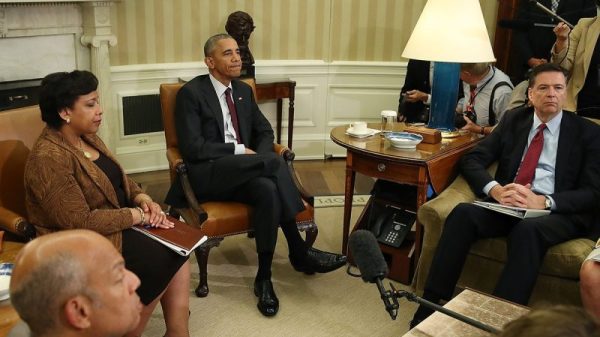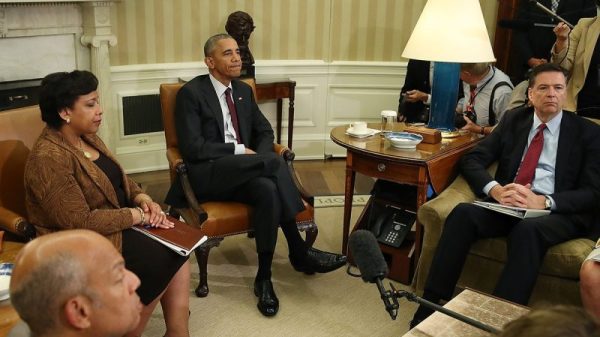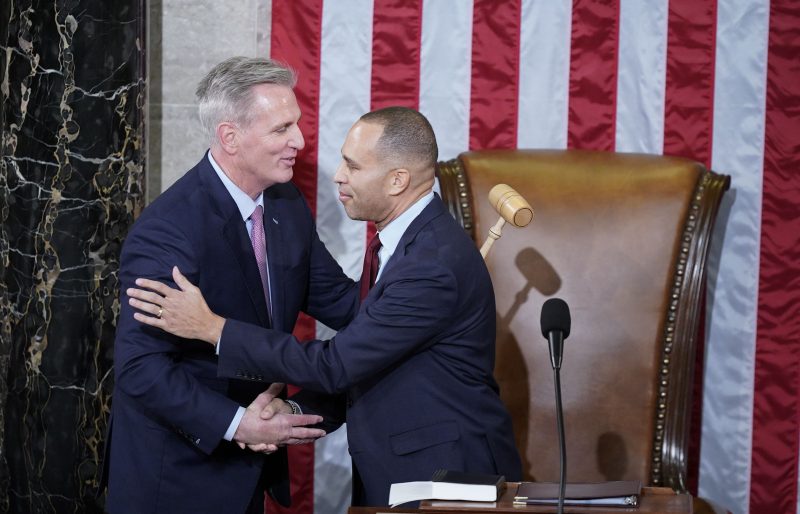To become House speaker, Kevin McCarthy (R-Calif.) had to give away much of the store to a small group of House Republicans. Less than nine months later, he could be looking for what’s left to give Democrats if he wants to try to keep the job.
But the situation that would result from such a workaround could be just as untenable — if not more so — than the pickle McCarthy is already in.
McCarthy’s decision this weekend to rely on mostly Democratic votes to temporarily keep the government funded averted a shutdown at the last minute. But it also revived a threat that has lingered over his speakership from Day One: the possibility that Republicans would move to oust him.
Rep. Matt Gaetz (R-Fla.) signaled this weekend that he will press forward with a “motion to vacate,” in which one member can force a vote allowing a majority of the House to remove the speaker. Were that vote to succeed, it would be a first in American history.
Gaetz did not bring up such a motion early Monday on the House floor, later citing the lack of members who had flown back in town. He said it could still be “coming today or later this week.”
Given that McCarthy has just five GOP votes to spare while keeping a majority, a relatively small number of Republicans voting to oust him could give the Democrats leverage. For every Republican who would vote to oust McCarthy beyond those five, he would need to pick off a Democrat willing to keep him in the job. So, for example, if the 20 Republicans who initially voted against McCarthy for speaker voted to remove him, McCarthy would need around 15 Democrats to vote to keep him in the job.
Or, a number of Democrats could vote “present” — a possibility that has been floated because it avoids having to vote affirmatively for McCarthy — helping McCarthy by reducing the threshold he needs to keep his job. (Each “present” vote would effectively count for half a vote in McCarthy’s favor.)
For now, Democrats are mostly keeping quiet. Rep. Alexandria Ocasio-Cortez (D-N.Y.) said this weekend that she would “absolutely” vote to oust McCarthy. But others are being conspicuously cagey about the possibility of helping a speaker from the other party hold his position. The idea is to see what kinds of concessions McCarthy might make to them and to give House Minority Leader Hakeem Jeffries (D-N.Y.) power to negotiate.
“If somehow Democrats are asked to be helpful, it’s not just going to have to be out of the kindness of our hearts,” Rep. Daniel Kildee (D-Mich.) told CNN last month.
A Democrat told The Washington Post over the weekend: “Before we save his a–, what do we get? We’re not going to provide the votes just because we’re just nice guys.”
As for what those concessions could even be? It’s entirely unclear. McCarthy undoubtedly lost any shot he had at goodwill with Democrats by recently launching a speculative impeachment inquiry into President Biden that they regard as a cynical and baseless attempt to save his own skin. The Post has noted that he could promise votes on certain Democratic priorities — perhaps on something like Ukraine funding — give Democrats more representation on committees, allot them more spending earmarks or promise to govern more from the center.
But as with the deals he cut with the House’s archconservatives to get the job in the first place, this could also hamstring him in a way that renders such a deal temporary at best.
“It seems exceedingly unlikely — basically impossible — for McCarthy to create a durable bipartisan procedural coalition,” said Matt Glassman, an expert on the politics of the House and the speakership at Georgetown University. “And even if he tried, that would require completely adjusting his policy program toward the Democrats that he would be bargaining with, and that would probably make more Republicans abandon him.”
Glassman said this would most likely just lure more Republicans to thwart whatever agenda McCarthy might press forward with, including using procedural techniques such as voting against crucial rules. There is little appetite in the GOP base for bipartisanship, and you can just about guarantee that the likes of Donald Trump would rally their side against a speaker who moves in any significant way toward Democrats.
“Just like the speaker’s election in January, it doesn’t do any good to get a majority one time,” Glassman said. “To run the House, you need an ongoing majority, day in and day out, in order to set the floor agenda.”
Republican strategist Liam Donovan said significant concessions are so unlikely that seeking them would essentially just serve to build the rationale for Democrats to join with the likes of Gaetz in ousting McCarthy. He said the real question is whether Gaetz can marshal the support to oust McCarthy, and the choice for Democrats is between taking McCarthy out and letting Republicans continue to turn on one another.
“Any quid pro quo is a non-starter,” Donovan said. “It’s simply not tenable for McCarthy to be seen as bargaining with Democrats to secure his job. Gaetz knows this, which is precisely why he engineered this situation.”
It’s for these reasons that McCarthy’s team is putting out word that he’s not ready to negotiate with Democrats to keep his job. But that might soon be the only option among a bunch of bad ones.
About the best hope McCarthy has for now is to limit GOP defections to a very few. That could enable him to survive without many concessions thanks to some combination of Democratic “present” votes and possibly Democrats from competitive districts voting to save him.
But there are only five Democrats in districts that voted for Trump in 2020. Perhaps enough Democrats will reason that they should give McCarthy the benefit of the doubt for now and see if he might move toward the middle, with the knowledge that another Gaetz-led motion to vacate could be just around the corner. (Gaetz has indicated he’ll keep bringing such motions until McCarthy is ousted.) Perhaps they’ll worry that whichever Republican might replace McCarthy as speaker would be even worse for them and that they should at least give McCarthy, whose principles have often appeared rather flexible, another shot.
Just as the deal McCarthy cut to become speaker is proving unworkable thanks to his narrow majority and the hard right’s impractical demands, it’s not clear that anything will allow him to stay there shy of Republicans suddenly rallying to his side.
And even in that case, how long could it possibly last? At best, the weekend’s actions keep McCarthy pinned in a bad spot for another 45 days.
This post has been updated with Gaetz’s comments Monday.



































